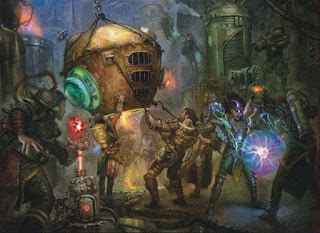Back to the Woodland: A Retrospective on the Marauders Era of Root

Welcome back fellow woodland warriors! It's been a while since my initial blog post trying to understand the complex faction interactions in Leder Games' Root. As the community prepares for the release of the new Homelands expansion, I wanted to take a more look back at the Marauders era with more complete data. We'll also look at some extra investigations on the impact of seating order, map, and deck choice on each faction's win rate. Since we last spoke, the Marauders expansion has been added to Root Digital. Due to the phenomenal work of the Root Digital League team we now have over 9,000 recorded games of Root across all of the factions, maps, and decks available (until Homelands releases at least). Overall Win Rates The overall win rates of each faction are reasonably consistent with expectations and community understanding. Last time, we had a small sample size for the two Marauders factions, and most of the data came from the 2021 Winter Tournament . These were ...



